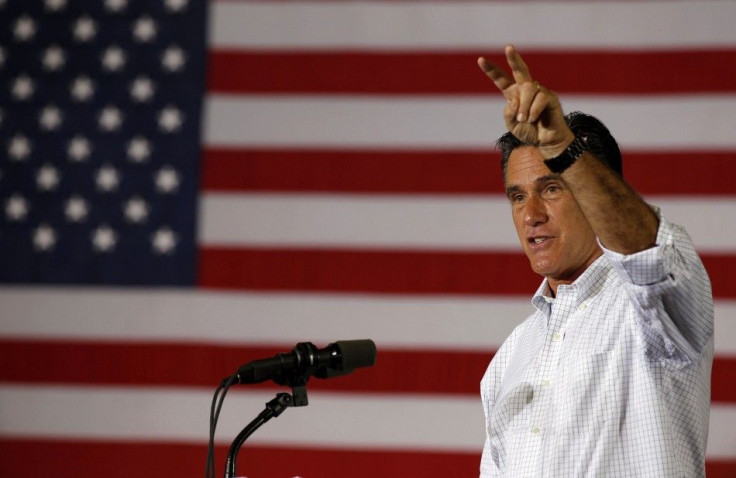With Foreign Trip, Romney Looks To Improve Image - But Not By Making Any Statements

The faltering economic recovery has bolstered Mitt Romney's argument, central to his presidential campaign, that he is better positioned than President Obama to lead the country back to prosperity.
Romney can invoke anemic monthly job numbers to contend that Obama's domestic policies have failed. But he faces a more difficult task in critiquing how the Obama administration's policies have unfolded outside of America's borders.
The president's litany of accomplishments abroad -- killing Osama bin Laden, decimating Al Qaeda with a relentless drone strike campaign, helping to push Libya's Muammar Ghadafi from power, following through on a promised withdrawal from Iraq and initiating the same process in Afghanistan -- underscores Romney's lack of foreign policy experience.
Romney will try to burnish his credentials, or at least increase his visibility on the international stage, with a planned trip to Israel, Poland and London. It will be the first foreign trip of his campaign. According to a top adviser the former governor of Massachusetts will not make any substantial announcements on his foreign policy positions during the trip. The lack of a clearly stated position is, however, exactly what has plagued Romney's campaign when it comes to foreign policy.
Romney's foreign policy stance has largely resembled the defensive crouch he tends to assume on more contentious issues. Rather than articulate his own plans, he has more typically fallen back on criticizing President Obama's record.
The presumptive Republican nominee set the tone for those attacks with an October speech that portrayed Obama as a bumbling, indecisive leader who had repeatedly apologized for America's global exploits while effectively choosing to wave the white flag of surrender.
On Israel, Romney has sought to capitalize on the perception that Obama has wavered in his support for a longtime U.S. ally. Romney told an audience at a Faith and Freedom Coalition conference that he would just look at the things the president has done and do the opposite.
On Iran, Romney has accused Obama of failing to put in place crippling sanctions, even as the toughest set of sanctions yet imposed tightens around Iran's economy, and has rapped Obama for counseling against a military strike (the president has maintained from the beginning that a military operation against Iran is an option).
On Russia, Romney raised eyebrows by calling the country America's No. 1 geopolitical foe. Critics saw the remark as a sign of his inexperience. Former Secretary of State Colin Powell, a fellow Republican, reacted by saying, Come on, Mitt. Think. The chairman of the international affairs committee of the Duma, Russia's parliament, warned that such rhetoric offered a replay of the Bush administration and warned of a full-scale crisis if Romney were elected.
It appears unlikely that Romney will offer any substance on his views during his voyage, which policy director Lanhee Chen described to ABC as an opportunity to learn and to listen.
We don't anticipate that this is an opportunity for the governor to make any specific policy pronouncements, Chen said.
Romney is undoubtedly hoping for a boost from his visit to Israel. He will meet with Prime Minister Benjamin Netanyahu, with whom he has a long personal history -- a contrast to the reportedly frosty relationship between Netanyahu and Obama -- and will give a speech pressing his strong view that America needs to stand by its allies, particularly allies that are under siege like Israel, Chen said.
© Copyright IBTimes 2025. All rights reserved.





















